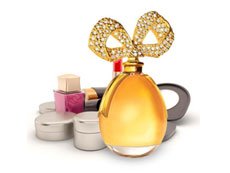

Fragrances for Perfumes and Cosmetics
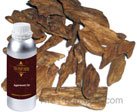
Agarwood Oil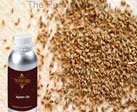
Ajwan Oil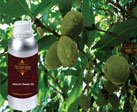
Almond Sweet Oil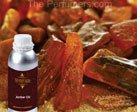
Amber Oil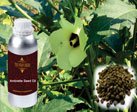
Ambrette Seed Oil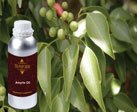
Amyris Oil
Angelica Root Oil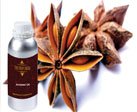
Aniseed Oil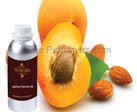
Apricot Kernal Oil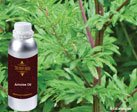
Armoise Oil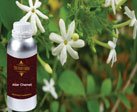
Attar Chameli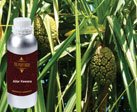
Attar Kewara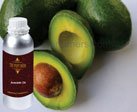
Avacado Oil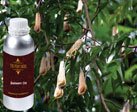
Balsam Oil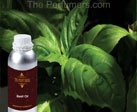
Basil Oil (Ocimum Basilicum)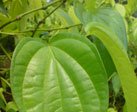
Betel Leaf Oil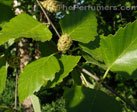
Birch Tar Oil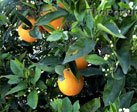
Bitter Orange Oil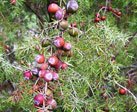
Cade Oil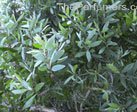
Cajeput Oil
Camphor Oil
Carrot Seed Oil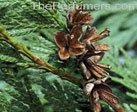
Cedarwood Oil
Chamomile Oil (Blue)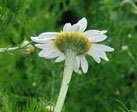
Chamomile Oil (Roman)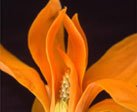
Champaca Oil
Chulmoogra Oil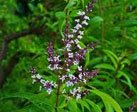
Citriodora Oil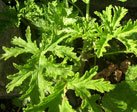
Citronella Oil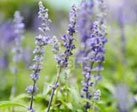
Clary Sage Oil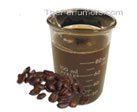
Coffee Oil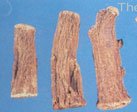
Costus Root Oil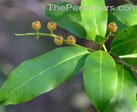
Croton Oil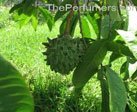
Custard Apple Oil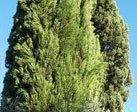
Cypress Oil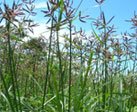
Cypriol Oil (Nagarmotha Oil)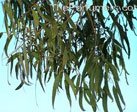
Eucalyptus Oil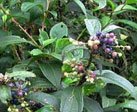
Gandhapura Oil / Gandharan Oil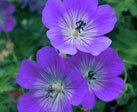
Geranium Oil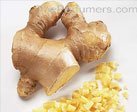
Ginger Grass Oil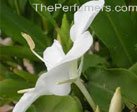
Hedychium Oil
Helichrysum Oil (Immortelle)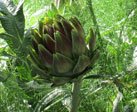
Henna Oil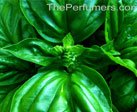
Holy Basil Oil
(Ocimum Sanctum Oil)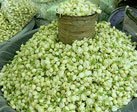
Jasmine Oil
(Jasminum Grandiflorum)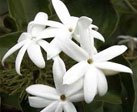
Jasmine Oil
(Jasminum Sambac)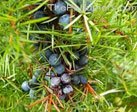
Juniper Berry Oil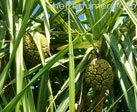
Kewra Oil
Lavender Oil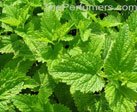
Lemon Balm Oil
Lemon Oil
Lemon Verbena Oil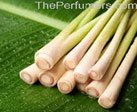
Lemon Grass Oil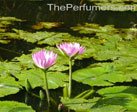
Lily Oil
Lotus Oil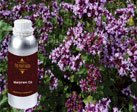
Marjoram Oil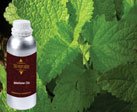
Melissa Oil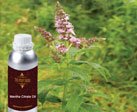
Mentha Citrata Oil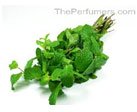
Mint Oil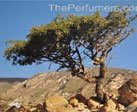
Myrrh Oil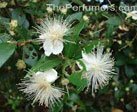
Myrtle Oil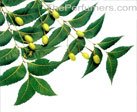
Neem Oil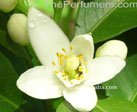
Neroli Oil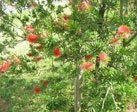
Niaouli Oil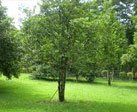
Nutmeg Oil
Olibanum Oil (Frankincense Oil)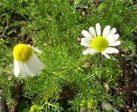
Palmarosa Oil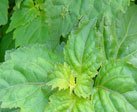
Patchouli Oil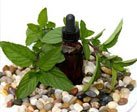
Peppermint Oil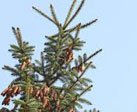
Peru Balsam Oil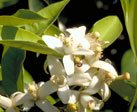
Petitgrain Oil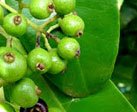
Pimen to Berry Oil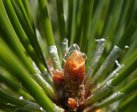
Pine Oil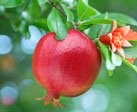
Pomegranate Seed Oil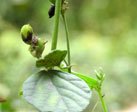
Psoralea Corylifolia Oil
Rose Oil (Centifolia)
Rose Oil (Damascena)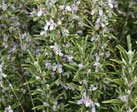
Rosemary Oil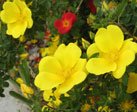
Rose Wood Oil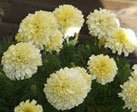
Tagetes Oil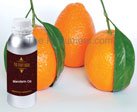
Tangerine (Mandarin) Oil
Tea Tree Oil
Thuja Wood Oil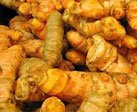
Turmeric Oil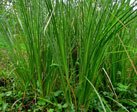
Vetiver Oil
Yara Yara Oil (Yarrow Oil)
Ylang Ylang Oil (Cananga Oil)

AMBRETTE SEED OIL
Botanical Name: Abeimoshus MoschatusOrigin: INDIA
Part used: SEEDS
Extraction: STEAM
Description: Ambrette Seed Oil is a gift to the perfumer. A sweet and rich, warm, musky, nutty aroma with a mysterious touch of floral. It is also one of the few oils containing natural musk compounds. Distilling whole seeds produce essential oil. This oil should be allowed to age for several months to allow the initial fatty notes to subside into a rich, sweet, floral musk, wine odor.

ANGELICA ROOT OIL
Botanical Name: Angelica archangelicaOrigin: INDIA
Part used: ROOT
Extraction: STEAM
Description: This tall standing plant can grow up to 3 metres (8 ½ feet) with broad pointed leaves, branching out into smaller clusters. The oil extracted from the root is colourless and thick, with age it becomes yellow. Although the seeds of the Angelica plant contain more oil, it is the root that holds the stronger oil. Angelica has a hollow stem, and sprouts tiny white flowers with a green tinge from July to August. Angelica has a long-standing reputation as a medicinal herb and has been recommended by European herbalists since the Fifteenth Century. Angelica is used to reduce muscular spasms in asthma and bronchitis, and the oil has been shown to ease rheumatic inflammation, regulate menstrual flow, and act as an appetite stimulant. The stems are candied for culinary use.

BASIL OIL
Botanical Name: Ocimum BasilicumOrigin: INDIA
Part used: FLOWERING HERB
Extraction: STEAM
Description: Basil originated in India. Basil soothes anger and hard feelings by encouraging feelings of love and is thought to simultaneously simulate the Heart and Sacral Chakras, thereby harmonizing stressful emotions while releasing sexual energies. Basil was introduced in Europe as a seasoning for food. It adds an outdoorsy, mint-like flavor to dishes, and is best used raw. It also strengthens the immune system and is known to kill germs. The herb has the ability to reduce blood sugar levels and also prevents peptic ulcers and other stress related conditions like hypertension, colitis and asthma. Basil is also used to treat cold and reduce fever, congestion and joint pain. Due to its anti-bacterial and fungicide action, basil leaves are used on itching skin, insect bites and skin eruptions. For mental fatigue, inhale first then apply to crown of head, forehead, heart and navel. The oil may be added to food or water as a dietary supplement.

BETEL LEAF OIL
Botanical Name: Piper betelOrigin: INDIA
Part used: LEAVES
Extraction: STEAM
Description: Betel leaf oil is extracted from the leaves of a vine from the pepper family. Betel Leaf is a very versatile oil, it can be used as a stimulant, an anti-inflammatory, and a pain reliever. Betel Leaf is used both as an antiseptic and a pain reliever, making this oil suitable for damaged skin or wounded skin. Betel Leaf oil is both a stimulant and aphrodesiac.

BIRCH OIL
Botanical Name: Betula LentalOrigin: GERMAN
Part used: BARK
Extraction: STEAM
Description: Birch contains an active principle similar to cortisone and is beneficial for massage associated with bone, muscle, and joint discomfort. It has also been used for arthritis, tendonitis, and rheumatism. Its aromatic wintergreen-like influences elevate, open and increase awareness in the sensory system. It may be applied neat to the bottom of the feet. Avoid using the oil during pregnancy or on people with epilepsy.

CADE OIL
Botanical Name: Juniperus OxycedrusOrigin: INDIA
Part used: WOOD
Extraction: STEAM
Description: Cade is the Mediterranean version of the Juniper tree, known as the prickly Juniper. Its leaves are white and green above, and a dark green on the underside. The Cade fruit forms as dark coloured berries, which grow in clusters. A mature Cade plant is used to obtain oil from the bark and twigs. The oil is dark brown with a red tinge and resinous.

CAJEPUT OIL
Botanical Name: Melaleuca LeucadendronOrigin: NDONESIA
Part used: LEAVES & TWIGS
Extraction: STEAM
Description: Cajeput is a cousin of Tea Tree. It is a powerful antiseptic that is useful in the treatment of chronic pulmonary diseases, asthma, sinus trouble, gingivitis, earaches and cystitis. It is a good air purifier that reduces the spread of the common colds and other viruses. It can be used to clean wounds and relieve muscular aches and pains. It is a powerful stimulant. The Cajeput is often referred to as White Tea Tree, and reaches 30 meters (90 feet) at maturity. This tree is distinguished by its loose white- grey bark, which is easily removable from the trunk. This colourless oil is distilled from the leaves and young twigs of the Cajeput plant.

CARROT SEED OIL
Botanical Name: Daucus CarotaOrigin: INDIA
Part used: SEEDS
Extraction: STEAM
Description: Carrot seed oil has an earthy and woody aroma. Carrot seed oil is used primarily for its healing properties and effects on the skin. It stimulates circulation, repairs and tones the skin, increases elasticity, reduces the formation of wrinkles, and scars. Carrot seed oil is a good addition to face creams for women over 30. It is also useful for balancing oily and dry skin.

CEDARWOOD OIL
Botanical Name: Cedrus DeodaraOrigin: INDIA
Part used: WOOD & SHAVINGS
Extraction: STEAM
Description: It is recognized for its purifying properties and is used in avoiding hair loss, dandruff, acne, psoriasis, arthritis, congestion, coughs, sinusitis, cystitis and nervous tension. Cedarwood oil historically is recognized for its calming, purifying properties and is used to benefit the skin and tissues near the surface of the skin. It also helps calm nervous tension. The oil is antimicrobial and antiseptic and can even be used to repel moths and insects. It is a nice addition to a men's fragrance blend. Use cedarwood to ease respiratory congestion, treat oily skin and scalp problems, and to lift spirits. It is a strong antiseptic, astringent and bug repellent. Cedarwood oil is very soothing when used in a steam shower or sauna. It can be used as a scent fixative in soaps and perfumes.

CHAMOMILE OIL-BLUE
Botanical Name: Matricaria ChamomillaOrigin: INDIA
Part used: FLOWERS
Extraction: STEAM
Description: Best choice as an anti-inflammatory balancing oil. Very good for irritated skin and treating menstrual pain and menopausal complaints. Calming and sedative. A gentle oil suitable for children. Soothes anger. Anti-inflammatory and anti-depressant. Pain relieving. Use for insomnia caused by stress. Its flowers help to ease indigestion, nervousness, depressions and headaches. It is ideal for emotion related medical problems such as peptic ulcers, colitis, spastic colon, and nervous indigestion. Chamomile was used by the Egyptians, Greeks, and Vikings as a whole-body healer. The herb has a purifying and calming effect and is burned as incense to deepen meditation. The tea makes a soothing tonic for the nerves, and gamblers who wash their hands in the tea are said to reap more winnings. The tea also eases menstrual cramps, and herbalists sometimes prescribe it to women for infertility. It is also a remedy for asthma, gallstones, diarrhea, toothaches, and middle ear infections.

CHAMOMILE OIL-ROMAN
Botanical Name: Chamaemelum NobillisOrigin: UNITED KINGDOM
Part used: FLOWERS
Extraction: STEAM
Description: Roman Chamomile is one of the main essential oils used to calm, comfort and sedate a restless spirit and to help relieve irritated, inflamed skin conditions. Roman chamomile is great for insomnia, nervous tension, and stress. In a bath, it will wash away tension after a long day, relax muscles and relieve aches and pains. It has anti-inflammatory properties and is good for the relief of headaches, inflamed joints, arthritis and menstrual cramps. Roman chamomile is generally used to treat psychological problems, beneficial for people who are short tempered, self involved, overly sensitive or rarely satisfied. Roman chamomile is a useful oil for women with irregular periods, ideally used in a bath or massage oil. Both have analgesic, antidepressant, antirheumatic and sedative properties, among many other properties. Blends well with bergamot, jasmine, palmarosa, rose and ylang ylang. Externally, it is used for sore skin and eczema. Apply the oil to bottom of feet, temples or on location, or it may be added to food or water as a dietary supplement. Safe for use with small children.

CITRONELLA OIL
Botanical Name: Cymobogon NardusOrigin: INDIA
Part used: GRASS
Extraction: STEAM
Description: It is used as an antiseptic, detergent, and insect repellant. Esoterically, it is used for purification and to heighten moods. Its most useful quality seems to be as an insect repellant and may also help pets get rid of fleas. Also known to clear the mind so may be useful against headaches and migraines. Its deodorant and stimulating properties always refresh sweaty tired feet, activating the whole body. Blends well with citrus oils, cedarwood, eucalyptus, peppermint, and eucalyptus.

CLARY SAGE OIL
Botanical Name: Salvia SclareaOrigin: RUSSIA
Part used: HERB
Extraction: STEAM
Description: An antispasmodic and aromatic plant, clary sage is used today mainly to treat digestive problems such as gas and indigestion. It is also regarded as a tonic, calming herb that helps relieve period pain and premenstrual problems. Good for asthma and relieves the anxiety. Regulates blood pressure. Good skin tonic and regenerates the cells. Not suitable when pregnant. Do not drink alcohol after massage. Clary sage oil may be beneficial in regulating cells. Its aromatic influence calms and enhances the dream state.

CYPRESS OIL
Botanical Name: Cupressus SempervirensOrigin: INDIA
Part used: NEEDLES
Extraction: STEAM
Description: The oil is one of the most used for the circulatory system. It creates a feeling of security, grounding, and helps soothe the emotions. It is anti-infectious, spasmolytic and a venous decongestant. Useful for sweaty palms or feet.It is inhaled for strength and comfort. A few drops of this oil on a cotton ball placed under the pillow can help stop coughing. It helps relieve painful periods and reduces abnormally heavy blood loss. Soothes anger. Blends well with bergamot, grapefruit, lavender, lemon, pine and sandalwood.

COFFEE ESSENTIAL OIL
Botanical Name: Coffea ArabicaOrigin: INDIA
Part used: BEANS
Extraction: STEAM
Description: The earliest cultivated species of coffee tree and still the most widely grown. It produces approximately 70% of the world's coffee, and is dramatically superior in cup quality to the other principal commercial coffee species. All fine, specialty, and fancy coffees come from Coffea arabica trees. Coffee has a multitude of possible uses. Coffee can be burned as a room deodorizer; coffee is an excellent anti-oxidant; been used to combat depression; for respiratory issues; stings; fever; and general nausea. Coffee Essential Oil is best appreciated when used independently. Coffee Essential Oil smells just like a fresh brewed pot of coffee. It is both warming and invigorating. Brazil is the world's largest producer of coffee. The name Coffee comes from Caffa, an Abyssinian province. Coffee essential Oil should be avoided during pregnancy. It may also cause heart palpitations in some individuals.

NAGARMOTHA OIL
Botanical Name: Cyperus RotundusOrigin: INDIA
Part used: ROOT
Extraction: STEAM
Description: Nagarmotha, also known as cyperus essential oil, is of Indian origin. It is steam distilled from the roots of Cyperus, a sedge plant (not to be confused with the Cypress tree). Nagarmotha has a unique diffusive aroma: dry, woody, earthy, with a hint of cinnamon, cedar, and frankincense - a very unusual fragrance component.

EUCALYPTUS OIL
Botanical Name: Eucalyptus GlobulusOrigin: INDIA
Part used: WOOD & LEAVES
Extraction: STEAM
Description: A traditional aboriginal remedy, eucalyptus is a powerful antiseptic used all over the world for relieving coughs and colds, sore throats and other infections. Tea made from the leaves is a stimulating tonic that relieves bronchial problems and coughs. The leaves also cool the body and relive fever. The antiseptic oil is used as a soothing stimulant in aromatherapy. Inhaling the vapors of the essential oils heated in water, clears sinus and bronchial congestions. The essential oil has also strong anti-biotic, anti-viral and anti-fungal action. It is excellent for skin or topical application. Eucalyptus globulus has been shown by laboratory tests to be a powerful antimicrobial agent. Apply the oil topically to chest or other areas, diffuse or use in a humidifier. It is also well suited for topical application or diffusing. This species is highest in the antibacterial compound and has one of the strongest antibacterial actions among the eucalyptus oils.

FRANKINCENSE OIL
Botanical Name: Boswellii CarterriOrigin: OMAN
Part used: RESIN
Extraction: STEAM
Description: Frankincense Oil has been used in religious ceremonies for thousands of years. ("And the Lord said unto Moses, It was well known during the time of Christ for its anointing and healing powers. During pagan times, it was burnt as an offering to Hermes and Demeter. Frankincense is now being researched and used therapeutically in European hospitals. It is anticatarrhal, prevents scarring, and is antitumoral, immune-stimulating, and antidepressant. It is stimulating and elevating to the mind and helps in overcoming depression and despair. The oil may be added to food or water as a dietary supplement.

GERANIUM OIL
Botanical Name: Pelargonium GraveolensOrigin: INDIA
Part used: LEAVES & FLOWERS
Extraction: STEAM
Description: Geranium - Enhances positivity and humour. Balancing and stabilising, can relax or stimulate depending on individuals needs. Use for menopause, fluid retention and hormonal imbalance. Stimulates lymphatic system. For acne and oily skin. Geranium Oil has been used for centuries for skin care and for its spiritually uplifting signature. Its natural strength lies in the ability to revitalize tissue. Its aromatic influence helps release negative memories.

GINGER GRASS OIL
Botanical Name: Cymbopogon Martinii Var.Origin: INDIA
Part used: GRASS
Extraction: STEAM
Description: The Gingergrass is a tall perennial grass reaching up to 1.5 metres high. Thin pale yellow oil found in India. This is a perennial growing herbaceous plant with long slender stems and terminal flowering tops. The grass from source of the essential oil is very fragrant. The aromatherapy uses for Ginger Grass include the improvement of circulation and blood flow, calming and reduction of stress, as well as the opening of sinus passages. From a spiritual perspective Ginger Grass is viewed as a mood uplifting, euphoric, aphrodisiac inducing oil. In the perfumery industry, Ginger Grass oil is added to inject a sharp, green scent - particularly in men's colognes. Ginger Grass blends well with cananga, geranium, rosewood, amyris, sandalwood, guaiacwood, cedarwood and essential oils. It is closely related to Lemongrass.

HELICHRYSUM OIL
Botanical Name: Helichrysum ItalicumOrigin: FRANCE
Part used: FLOWERS HEADS
Extraction: STEAM
Description: Helichrysum Oil has been studied by European researchers for regenerating tissue and nerves and improving circulation and skin conditions. It is anticoagulant, prevents phlebitis, helps regulate cholesterol, stimulates liver cell function, is anticatarrhal, mucolytic, expectorant, antispasmodic, and reduces scarring and discoloration. Blends well with orange, frankincense and lavender. It has potential in aromatherapy, considering it useful for the treatment of rheumatism, herpes, varicose ulcers, dermatitis, herpes and bronchitis. Avoid during pregnancy.

JUNIPER BERRY OIL
Botanical Name: Juniperus CommunisOrigin: INDIA
Part used: BERRIES
Extraction: STEAM
Description: It is a valuable remedy for cystitis, and helps relieve fluid retention, but should be avoided in cases of advanced kidney disease. In the digestive system, juniper is warming and settling, easing colic and supporting the function of the stomach. Taken internally or applied externally, juniper is helpful in the treatment of chronic arthritis, gout and rheumatic conditions. Properties - diuretic, anti-microbial, carminative, anti-rheumatic. Juniper oil has also been used to stimulate nerve function. Its aromatic influences evoke health, love and peace.

KEWRA ESSENTIAL OIL
Botanical Name: Pandanus OdoratissmusOrigin: INDIA
Part used: FLOWERS
Extraction: STEAM
Description: Kewra flowers have a sweet, perfumed odour with a pleasant quality similar to rose flowers, but kewra is more fruity. The essential oil from pandanus flowers. Because it is well soluble in water, 2-phenylethanol can be captured in watery distillates quite easily. Various species of the genus grow in tropical regions of Southeast and South Asia; some of those have fragrant leaves. The species most important as a source of kewra water is P. odoratissimus, which is native to South and peninsular South East Asia; it is much cultivated on the Indian East coast (Orissa).

LAVENDER OIL
Botanical Name: Lavandula AngustifoliaOrigin: FRANCE
Part used: FLOWERS HEADS
Extraction: STEAM
Description: Lavender - Powerful relaxant for both body and mind. Good for mood swings, fear and depression, calms nerves. Excellent for treating burns, sunburn, scarring, bruises, headaches, inflammation, coughs and colds. Boosts the immune system. Can be applied directly on the skin. Good room deodoriser and insect repellent. Not suitable during pregnancy.

LEMON VERBENA OIL
Botanical Name: Lippia CitriodoraOrigin: SPAIN
Part used: LEAVES
Extraction: STEAM
Description: Verbena oil has a sweet lemony scent, which has made it a popular oil in the fragrance industry. Aside from possessing antiseptic and anti-spasmodic properties, it is also a very effective insecticide. Verbena oil is highly phototoxic and is a strong skin sensitizer. It is not recommended for use in cosmetics or on the skin. In a diffuser, it can combat nausea, depression and sinus congestion. It blends well with basil, bergamot, chamomile, geranium, neroli, rose, and rosemary.

LEMON GRASS OIL
Botanical Name: Cymbopogon CitratusOrigin: INDIA
Part used: LEAVES
Extraction: STEAM
Description: Lemongrass is now widely cultivated in the tropical areas of America and Asia. Its oil is used as a culinary flavoring, a scent, and medicine. Lemongrass is applied externally to ease pain and arthritis. Properties - digestive, antispasmodic, analgesic, antifungal. Lemongrass oil may be beneficial for the digestive system and as a purifier. It has been reported to help regenerate connective tissue. Its aromatic influences are psychic awareness and purification. Lemon grass is principally taken as a tea to remedy digestive problems diarrhea and stomachache. It relaxes the muscles of the stomach and gut, relieves cramping pains and flatulence and is particularly suitable for children. Lemongrass tea is drunk to develop psychic powers. According to folklore, lemongrass planted in a garden or yard repels snakes because of its powerful etheric properties.

LEMON OIL
Botanical Name: Citrus LimonumOrigin: ITALY
Part used: PEEL
Extraction: COLD PRESSED
Description: Lemon is native to Asia, India. It is now widely cultivated elsewer. Lemon was unknown to the ancient Greeks and was brought to Europe by Roman soldiers returning from Asia Minor. It is one of the most important and versatile natural medicines for home use. It has a high vitamin C content that helps improve resistance to infection, making it valuable for colds and flu. It is taken as a preventative for many conditions, including stomach infections, circulatory problems and arteriosclerosis. Lemon juice and oil are effective in killing germs. It decreases inflammation and improves digestion. Properties - antiseptic, anti-rheumatic, antibacterial, antioxidant, reduces fever. It may serve as an insect repellent and may be beneficial for the skin. Lemon juice is a powerful cleaning agent and is used to wash magical implements of all types of toxicity. A cleansing tea is made from dried lemon peels.

MELISSA OIL
Botanical Name: Melissa OfficinalisOrigin: SPAIN
Part used: FLOWERS HEADS
Extraction: STEAM
Description: Melissa has been cultivated in the Mediterranean region.The Muslim herbalist Avicenna recommended melissa for heart problems. It calms nervous spasms, colics and hearth spasms. The hot tea promotes sweat that that is good for colds, flus and fevers. Its sedative actions have been used to help in the dystonia. Lemon balm's anti-histamine action is useful to treat eczema and headaches. Today, this sweet-smelling herb is still widely valued for its calming properties, and new research shows that it can help significantly in the treatment of cold sores, antispasmodic, anti-viral, nerve tonic, sedative, colds, influenza, depression, headaches, restlessness, allergies & bad dreams.

TEA TREE OIL
Botanical Name: Melaleuca AlternifoliaOrigin: AUSTRALIA
Part used: LEAVES & TWIGS
Extraction: STEAM
Description: Tea tree oil has gained immense recognition as the strongest anti-fungal, anti-viral and anti-bacterial oil used in aromatherapy. Tea tree oil is a very popular addition to skin care formulations for its germ-killing properties. Use tea tree in masks and toners to combat acne. Use it in lip balms to fight cold sores. Used in a balm, tea tree can help to quickly heal wounds and keep infection from setting in. Use it in mouthwashes to help treat oral disease. Tea tree blends well with lavender, peppermint, eucalyptus, niaouli, spikenard, sandalwood and vetiver.

TEGETES OIL
Botanical Name: Tagetes MinutaOrigin: INDIA
Part used: FLOWERING HEADS
Extraction: STEAM
Description: The Tagetes plant has feathery leaves with deep divisions, and small bright orange flowers, similar in appearance to Carnations. The oil is extracted from the plant after the flowers are in full bloom.

THUJA WOOD OIL
Botanical Name: Thuja OccidentalisOrigin: INDIA
Part used: WOOD
Extraction: STEAM
Description: The tallest of this species of Conifer rarely grows above 30 feet high. These trees have regular, graceful conical forms that make them valuable as highhedge trees, and they also take easily any other shape to which they may be clipped. The name Thuja is a latinized form of a Greek word meaning 'to fumigate,' or thuo ('to sacrifice'), for the fragrant wood was burnt by the ancients with sacrifices. It has a strong earthy woodsy fragrance. Great for masculine type soaps, lotions and colognes. A natural insect repellant.

TURMERIC OIL
Botanical Name: Curcuma LongaOrigin: INDIA
Part used: ROOT
Extraction: STEAM
Description: Turmeric is native to India and southern Asia where it is extensively cultivated. It is the root of a plant related to ginger that was used for centuries by Hawaiian priests in purification rituals. In Europe, it was associated with magical power because of its deep golden color and peppery flavor. Turmeric has been used since the Middle Ages to treat jaundice and liver infections, and it also contains an anti-inflammatory ingredient that fights arthritis and heart disease. Best known for its bright yellow color and spicy taste to lovers of Indian food, its medicinal value is not so well known. However, recent research has confirmed the effects traditionally associated in ancient practices in the treatment of digestive and liver problems. The herb has also been shown to inhibit blood-clotting, relieve inflammatory conditions and help lower cholesterol levels. Tumeric stimulates secretion of bile, anti-inflammatory, eases stomach pain, antioxidant, antibacterial.

VETIVER OIL
Botanical Name: Vetiveria ZizanoidesOrigin: INDIA
Part used: ROOT
Extraction: STEAM
Description: Vetiver Oil has a heavy, earthy fragrance similar to patchouli with a touch of lemon. Distilled from the roots of a scented grass native to India, it is well known for its anti-inflammatory properties. It is psychologically grounding, calming and stabilizing. Vetiver may help us cope with stress and recover from emotional traumas and shocks. Vetiver is an amber colored, thick essential oil that has a subtle but sweet, smoky, resin-like smell. It is very grounding, balancing and relaxing, and a "must have" for relaxing blends. It helps fix other scents as it lingers in the background. Vetiver blends beautifully with many oils.

YARROW YARROW OIL
Botanical Name: Achillea MillefoliumOrigin: BULGARIA
Part used: DRIED HERB
Extraction: STEAM
Description: Yarrow is a native European plant with a long history as a wound healer. In classical times, it was known as Herba militaris, being used to heal war wounds. Yarrow also affects the capillaries of the lungs, nose and uterus and is suited to all wounds that bleed profusely, sprains and over-lifting. It is also helpful for menstrual problems and circulatory disorders. It has long been taken as a strengthening bitter tonic, and it is an ingredient in all kinds of bitter drinks. Yarrow helps recovery from colds and flu and is beneficial for hay fever. Uses - antispasmodic, astringent, bitter tonic, increases sweating, lowers blood pressure, reduces fever, mild diuretic and urinary antiseptic, hemorrhages, incarcerated hernia, small-pox, after operations for stones, bleeding from wounds, painful varicose veins during pregnancy, vertigo, and hemoptysis with incipient tuberculosis.

YLANG YLANG OIL
Botanical Name: Cananga OdorataOrigin: MADAGASKAR
Part used: FLOWERS
Extraction: STEAM
Description: The flowers are a traditional adornment in the Far East and their scent is thought to have aphrodisiac qualities. The fragrant, pale yellow petals are often strewn across the marriage bed. Its softer floral scent is often used in men's fragrances as an alternative to the sweeter and more feminine rose. Its aromatic influences are those of sexual energy and enhancing relationships. The oil has a soothing effect, and its main therapeutic uses are to slow an excessively fast heart rate and to lower blood pressure. With its reputation as an aphrodisiac, ylang-ylang may be helpful in treating impotence. Properties are antiseptic, aromatic, regulates blood pressure. Ylang ylang oil may be extremely effective in calming and bringing about a sense of relaxation.

MYRRH OLEORESIN
Botanical Name: Commiphora MyrrhaOrigin: SOMALIA
Part used: RESIN
Extraction: STEAM
Description: Myrrh is native to northeast Africa and today is mainly found in Ethiopia, Somalia, Saudi-Arabia, Iran, and Thailand. In Egypt, it was offered to Ra when the sun was at noon. Myrrh has been used in perfumes, incense, and embalming. Its astringent, antimicrobial and antiseptic properties have been used to treat acne and boils as well as mild inflammatory conditions. It finds specific use in the treatment of infections in the mouth such as ulcers, gingivitis, pyorrhea, as well as catarrhal problems associated with pharyngitis and sinusitis. Properties : stimulant, antiseptic, anti-inflammatory, astringent, expectorant, antispasmodic, carminative. It was also used to help with asthma, bronchitis, catarrh, coughs, gum infection, gingivitis, mouth ulcers and sore throat.

MYRTLE OIL
Botanical Name: Myrtus CommunisOrigin: TURKEY
Part used: BLOOSOM
Extraction: STEAM
Description: Myrtle is native to the Mediterranean region and is mainly cultivated for the extraction of its essential oil. Used in ancient Greece, the astringent, tonic and antiseptic properties of its bloosom are used to heal wounds, or internally to remedy disorders of the digestive and urinary systems. The oil is antiseptic and anti-catarrhal, and is used to treat chest ailments. Properties : antiseptic, astringent, expectorant. Myrtle oil has been researched for normalizing hormonal imbalances of the thyroid and ovaries as well as balancing the hyperthyroid. Myrtle oil has many reported benefits for the skin such as helping with acne and oily skin. Research has also shown it to help the respiratory system with chronic coughs and tuberculosis. It is suitable to use for children's coughs and chest complaints and may help support the immune function in fighting colds, flu and infectious disease. Suitable for use on children.

MENTHA CITRETA OIL
Botanical Name: Mentha AquaticaOrigin: INDIA
Part used: PLANT
Extraction: STEAM
Description: It can be an aid to digestion, having calming effects on muscle spasms, aches and pains. It can also be used to alleviate sinus pain and pressure, and is often incorporated into skin care products to help balance the oil content of skin and hair. Can irritate sensitive skin and not be used on children.

NEROLI OIL
Botanical Name: Citrus AurantiumOrigin: TUNISIA
Part used: FLOWERS
Extraction: STEAM
Description: Neroli - Sedative and antidepressant. Good for anxiety and shock. Helps relieve muscle spasms of the smooth muscles. Non-irritant skin tonic. Used in the treatment of fragile or broken skin capillaries. The oil has a unique, lovely floral citrus scent that can calm anxiety, relieve depression, and uplift the spirits. Neroli is a very balancing oil for the skin and hair, and can help control overproduction of sebum when diluted with jojoba. It is one of the best oils for the face as it helps regenerate skin cells. It blends beautifully with rose, bergamot, geranium oils.

NUTMEG OIL
Botanical Name: Myristica FragransOrigin: INDONESIA
Part used: SEEDS
Extraction: STEAM
Description: Nutmeg is the dried fruit of the tropical nutmeg tree. The dried outer covering (arillode) of the nutmeg is ground into a spice called mace. Nutmeg oil supports the adrenal glands for increased energy. It also helps to support the nervous system and overcome nervous fatigue. This oil has historically benefited circulation, muscles, joints, arthritis, gout, aches and pains, rheumatism, flatulence, indigestion, sluggish digestion, nausea, and bacterial infection. The oil may be added to food or water as a dietary supplement or flavoring; use with caution during pregnancy or if susceptible to epilepsy.

NIAOULI OIL
Botanical Name: Malaleuca ViridifloraOrigin: AUSTRALIA
Part used: LEAVES & TWIGS
Extraction: STEAM
Description: Niaouli is a strong antiseptic, anti-bacterial oil. It is useful during the cold season to treat head and chest colds. Niaouli can help relieve skin conditions like psoriasis and acne, and it can quickly heal wounds and burns. Niaouli is a good "pick me up" oil to have in the remedy chest. Niaouli blends nicely with basil, citrus oils, lavender, tea tree and eucalyptus.

PALMAROSA OIL
Botanical Name: Cymbopogon MartiniOrigin: INDIA
Part used: GRASS
Extraction: STEAM
Description: Cymbopogon martinii, steam distilled grass, India (standard cultivation). Powdery, floral, herbaceous, perhaps with a hint of rose. It is antifungal and antiviral. Indicated for bronchitis, birthing, regeneration of the skin, and regulating oil production of the skin. Useful in treating skin infections.

PATCHOULI OIL
Botanical Name: Pogostemon CablinOrigin: INDONESIA
Part used: LEAVES
Extraction: STEAM
Description: Patchouli is native to Malaysia and the Philippines and is now cultivated in tropical and sub-tropical regions around the world. Patchouly has been used extensively in Asian medicine, appearing in the Chinese, Indian and Arabic traditions. The oil is widely employed as a fragrance and, in India, as an insect repellent. Patchouly is used in herbal medicine in Asia as an aphrodisiac, antidepressant and antiseptic. It is also employed for headaches and fever. It is a general tonic and stimulant and helps the digestive system. Patchouly's essential oil is used in aromatherapy to treat skin complaints. It is thought to have a regenerative effect on skin tone and to help clear conditions such as eczema and acne. The oil may also be used for varicose veins and hemorrhoids. Properties - antiseptic, aromatic, antidepressant. Patchouly's aromatic influences are particular to physical energy and money. Tantric alchemists anoint their cheeks and breast with patchouly oil.

PEPPERMINT OIL
Botanical Name: Mentha PiperitaOrigin: INDIA
Part used: FLOWERING HEADS
Extraction: STEAM
Description: Peppermint tea helps with indigestion and relaxes the muscles of the digestive tract. Peppermint's chief therapeutic value lies in its ability to relieve wind, flatulence, bloating and colic, though it has many other applications. Peppermint also eases nervous headaches. Menthol, its main constituent, has antibacterial properties. Externally, the essential oil is used in balms and liniments to stimulate hot and cold nerve endings and increase local blood flow. Uses of the oil: headache, fevers, candida, nausea and vomiting, liver and respiratory problems, impaired taste and smell, and lack of mental concentration. Apply to bottom of feet to cool off on a hot day. Rub on the temples for a soothing, calming effect, but avoid contact with eyes. Do not apply neat to a fresh wound or burn; use with caution during pregnancy or if prone to high blood pressure.

PETITGRAIN OIL
Botanical Name: Citrus AurantiumOrigin: PARAGUAY
Part used: LEAVES & TWIGS
Extraction: STEAM
Description: Pettigrain Oil is derived from orange leaves. Petitgrain oil is antimicrobial, anti-spasmodic, anti-inflammatory, anti-infectious, anti-bacterial, and re-establishes nerve equilibrium. Diffuse the oil or apply topically. Petitgrain has been used throughout the history of perfumery for its light, fresh, floral citrus aroma. It blends well with so many other oils, but try it with clary sage, ylang ylang, sandalwood and rosewood.

PINE OIL
Botanical Name: Pinus PinasterOrigin: INDIA
Part used: NEEDLES
Extraction: STEAM
Description: Pine oil extracted from the needles, is added to disinfectants and other preparations. Esoterically, it is used to invoke the pagan god Pan and evoke justice in psychic work. Essential oil from the needles may be taken for asthma, bronchitis and other respiratory infections, and for digestive disorders such as gas. Pine Oil was first investigated by Hippocrates, the father of Western medicine, for its benefits to the respiratory system. Pine is used in massage for stressed muscles and joints, and it shares many of the same properties as eucalyptus globulus, and the action of both oils is enhanced when blended. Be sure to use only pure pine oil. Put two drops in palms of hands, place over mouth and inhale. Add 2-4 drops to warm bathwater.

PIMEN TO BERRY OIL
Botanical Name: Pimenta PigmentumOrigin: INDIA
Part used: BERRIES
Extraction: STEAM
Description: This evergreen tree is indigenous and reaches about 10 meters in height (approximately 30 feet) and begins to produce fruit in its third year. It is similar to the Bay tree. After flowering through June, July and August the tree produces berries that can also be used for essential oil. Pimento essential oil is credited with the properties - as an anesthetic, analgesic, antioxidant, antiseptic, carminative, muscle relaxant, rubefacient, stimulant and tonic. Blends well with Pimento works particularly well with Ginger, Geranium, Lavender, Orange, Patchouli, and Ylang Ylang. Pimento carries a combination scent of cloves, juniper berries, cinnamon and pepper. This is the reason it is also referred to as Allspice.

ROSE OIL-INDIAN
Botanical Name: Rosa DamascenaOrigin: INDIA
Part used: FLOWERS
Extraction: STEAM
Description: Rose comes originally from Asia Minor, where it is cultivated mostly in Bulgaria, Iran and India. The rose also has many medicinal benefits. Rose petals and their preparations have a similar action. They also reduce high cholesterol levels. Properties - aromatic, antidepressant, sedative, anti-inflammatory. The essential oil is used in aromatherapy as a mildly sedative, antidepressant and anti-inflammatory remedy. Rose oil has the highest frequency of any oil. It is very therefore the most expensive oil. Its beautiful fragrance is intoxicating and aphrodisiac-like. It helps brings balance and harmony and is stimulating and elevating to the mind, creating a sense of well-being. Uses : chronic bronchitis, asthma, tuberculosis, sexual debilities, frigidity, impotency, skin disease, wounds, ulcers, sprains, wrinkles, thrust, and gingivitis.

ROSEMARY OIL
Botanical Name: Rosmarinus OfficinalisOrigin: FRANCE
Part used: HERB
Extraction: STEAM
Description: Rosemary is a well-known and greatly valued herb that is native to southern Europe. Rosemary is a very slender herb resembling pine needles. Rosemary retards spoilage in salads and works similarly in the human body. Rosemary herb increase circulation, improve memory, reduce headaches, and have anti-bacterial and fungal properties. Rosemary improves food absorption by stimulating digestion, the liver, the intestinal tract, and the gallbladder. It also is used in antiseptic gargles for sore throats, gum problems and canker sores. Rosemary has a long-standing reputation as an invigorating herb, imparting a zest for life that is to some degree reflected in its distinctive aromatic taste. Properties - tonic, stimulant, astringent, nervine, anti-inflammatory, carminative. The scent alone is said to preserve youth. It alleviates depression, eases headaches, increases mental clarity, and preserves good humor and eliminate negativity of all kinds. Avoid during pregnancy or if susceptible to epilepsy or high blood pressure.

ROSE WOOD OIL
Botanical Name: Aniba RoseadoraOrigin: INDIA
Part used: WOOD
Extraction: STEAM
Description: Rosewood is an evergreen tree that can grow to around 40 metres (125 feet) in height with yellow flowers in season. Rosewood Oil improves skin elasticity and helps the skin rid itself of irritations and problems, such as candida. Properties - anti-infectious, antibacterial, antifungal, antiviral, and antiparasitic. This oil has the highest inhibition rate of all the oils tested against bacterial growth. Its aromatic influences are those of peace and gentleness.